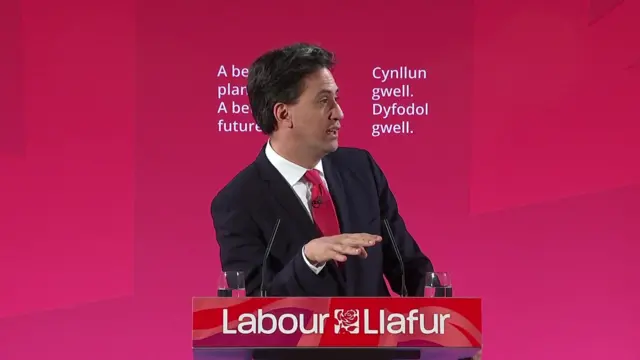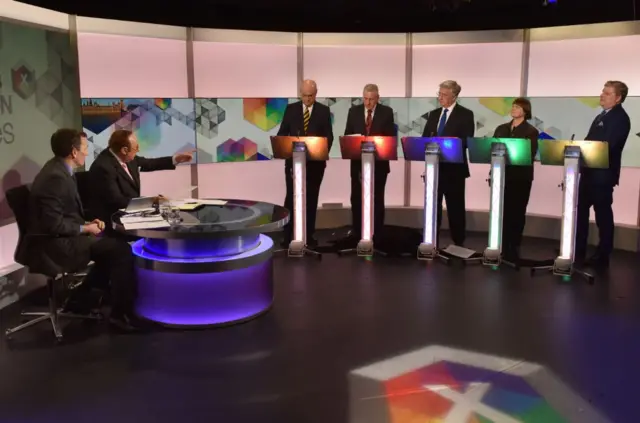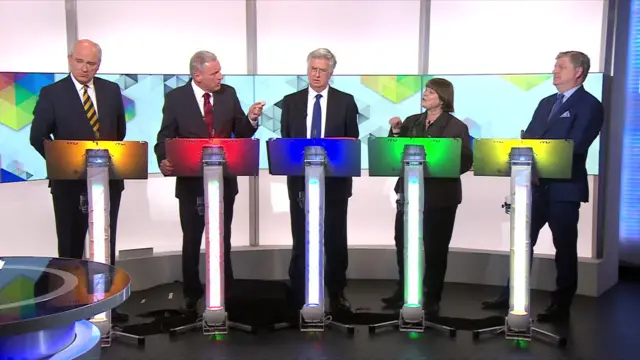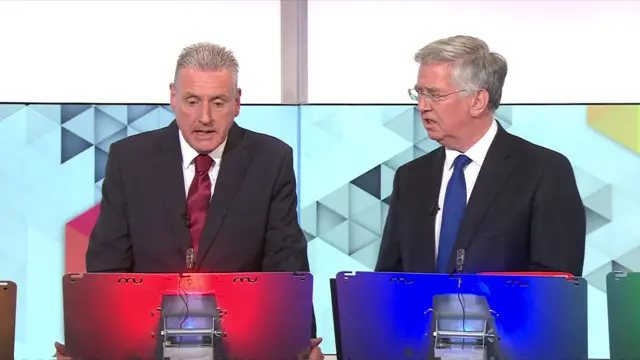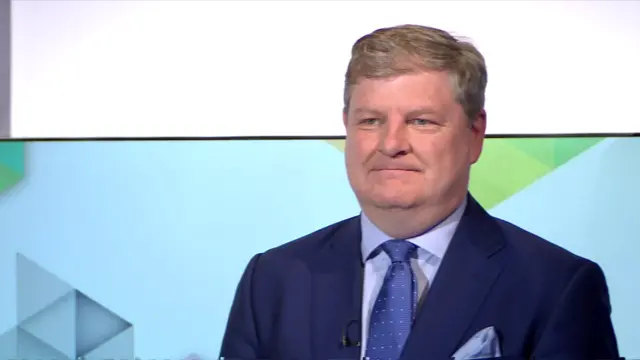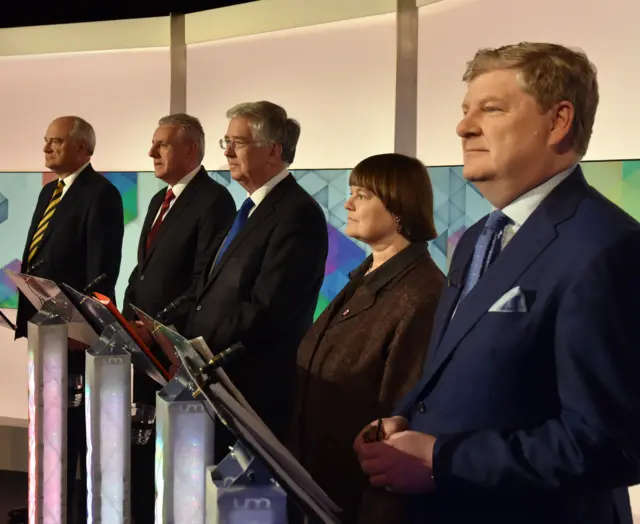Pledge cardpublished at 15:14
The Labour leader begins his stump speech by saying that "it's only when working people succeed that Britain succeeds". It's the "central thread" running through the campaign, he explains, before working his way through the policies on Labour's pledge card. We first found out what was featuring on the card last month . Its five big promises to voters are:
- A strong economic foundation
- Higher living standards for working families
- An NHS with the time to care
- Controls on immigration
- A country where the next generation can do better than the last
Yesterday a sixth pledge was added to a new version of the card:
- homes to buy and action on rent
